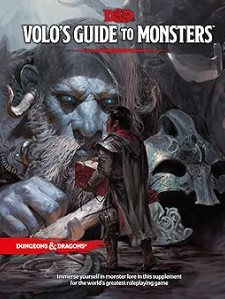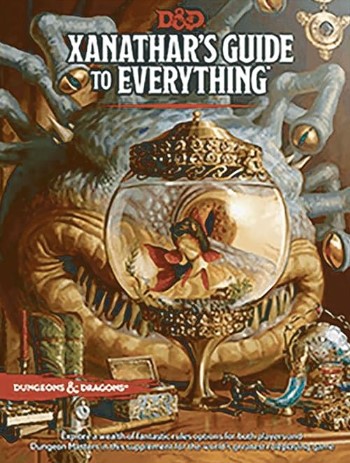Science fiction and fantasy have always been about breaking boundaries—whether it’s traveling through galaxies, uncovering magical realms, or pushing the limits of human imagination. Yet in recent years, a new genre has been steadily climbing the charts, reshaping the way readers experience adventure. That genre is LitRPG—short for “Literary Role-Playing Game.” Got it? Okay, let's continue.
If you’ve ever dreamed of your favorite video game colliding with your favorite novel, LitRPG is exactly that fusion. It mixes the excitement of leveling up, unlocking skills, and grinding toward victory with the emotional depth of well-crafted characters and storylines. And while it might have started as a niche corner of fiction, LitRPG is proving it has the potential to be the future of sci-fi and fantasy storytelling.
Let’s break down why.
1. Gaming Culture Has Gone Mainstream
Not long ago, gaming was dismissed as a hobby for a specific crowd. Now it’s everywhere. From blockbuster esports tournaments filling stadiums to millions of players streaming RPGs like Elden Ring or World of Warcraft, gaming is no longer “just for gamers”—it’s part of everyday life.
LitRPG taps directly into that culture. The language of leveling, stats, and skills isn’t foreign anymore—it’s familiar to millions. When a character in a LitRPG novel unlocks a new ability or grinds through a dungeon, readers instantly “get it.” It’s the same thrill as beating a tough boss in a game, except you’re immersed in it through story.
In this way, LitRPG is perfectly aligned with the cultural shift. It’s not just borrowing from gaming—it’s becoming the bridge between gaming and reading, two worlds that younger generations already love.
2. From Gamers to Readers, from Players to Writers
Here’s something often overlooked: a huge part of LitRPG’s rise comes from the gamers who grew up. Many of them don’t have the time—or the stamina—they once did to sit down for hours-long gaming sessions. Life comes knocking: jobs, families, responsibilities, the grind of reality. And let’s be honest, the dream of earning an income from gaming isn’t in the cards for everyone.
So what happens? They marry their passion for gaming with their love of storytelling. Instead of logging in to raid for eight hours, they channel that energy into writing or reading worlds that feel like games. Boom—LitRPG is born.
For writers, it’s a way to keep that gaming spark alive while building something lasting. For readers, it scratches the same itch as gaming without demanding the same time investment. You still get the thrill of leveling up and conquering bosses, but you can do it on your commute, before bed, or in the gaps of everyday life. It’s the perfect evolution for a generation that refuses to let go of their love for games, even as their lives move forward.

One of the hallmarks of LitRPG is the progression system. Characters don’t just randomly become stronger—they earn it. They train, they fight, they fail, and they slowly build themselves up. Readers get to see the math of growth: the stats, the skill unlocks, the equipment upgrades.
Why is this so appealing? Because it’s tangible. In many traditional fantasy books, a hero suddenly discovers their hidden destiny or awakens unexplained powers. In LitRPG, progress is measurable. You know why the protagonist can now defeat a monster that crushed them ten chapters ago—it’s because they put in the grind.
This mirrors real life. We crave stories where effort pays off, where hard work and resilience matter. LitRPG delivers that sense of achievement in a way that feels both logical and inspiring.
4. The Perfect Blend of Escapism and Relatability
At its core, sci-fi and fantasy are about escaping into other worlds. LitRPG heightens that escapism by making the mechanics of those worlds clear. Readers don’t just get told “magic exists”—they’re handed the rulebook. You see how the spells are cast, how mana is drained, how dungeons are designed.
But here’s the twist: while the worlds are fantastical, the struggles are incredibly relatable. Protagonists in LitRPG often start as ordinary people—gamers, workers, or students—before being thrown into extraordinary circumstances. They make mistakes, they complain about grinding, they celebrate small victories. In many ways, they react exactly how we would if we suddenly woke up inside a game-like universe.
That mix of escapism and relatability is what makes LitRPG so powerful. It’s wish fulfillment and self-reflection rolled into one.
5. Community Power: Reddit, Discord, and Beyond
LitRPG didn’t rise because a few publishers decided to push it—it grew because communities rallied around it. On Reddit, Discord, and web fiction platforms like Royal Road, readers discuss favorite series, share recommendations, and even interact directly with authors.
This grassroots growth matters. It means LitRPG isn’t just another sub-genre being marketed to readers—it’s a genre being built with readers. Authors can adapt, experiment, and respond to feedback in real time. Readers, in turn, feel ownership and pride in the stories they champion.
That community-driven energy is the lifeblood of LitRPG, and it’s something traditional publishing rarely manages to capture.
6. Room for Infinite Creativity
The genre’s foundation—“a world with game-like rules”—is so broad that it opens endless creative doors. Want a dungeon crawl with dark humor? Try Dungeon Crawler Carl. Want slice-of-life farming with surprising depth? Beware of Chicken is waiting. Want time loops, magical academies, or cosmic-level cultivation? Mother of Learning and Cradle have you covered.
Because the framework is flexible, LitRPG can borrow from sci-fi, fantasy, horror, romance, or comedy. It’s less a rigid genre and more a toolset for building new worlds. That adaptability is what gives it staying power—it can evolve alongside reader tastes and never feel stale.

7. LitRPG Speaks to a New Generation of Readers
The youngest readers entering sci-fi and fantasy right now grew up with games. They don’t just want to watch heroes fight dragons—they want to understand the rules of the fight, the stats behind the sword swing, the cost of each spell. They want stories that reflect the logic of the games they’ve grown up playing.
For them, LitRPG feels natural. It’s the language of progression, effort, and strategy wrapped in a story that still hits emotionally. And for older readers, it’s a chance to relive that thrill of growth and discovery in a format that feels fresh.
8. The Emotional Core Still Matters Most
Some critics argue that LitRPG is too mechanical—that it focuses too much on stats and not enough on story. But the best LitRPGs prove otherwise. At their heart, these stories are about human struggle and resilience.
Take He Who Fights With Monsters—sure, Jason Asano gains wild powers and navigates insane systems, but what readers remember are his moments of doubt, his humor in the face of pain, and his growing sense of responsibility. Or Mother of Learning, where the brilliance isn’t just the time loop system, but how it forces Zorian to grow emotionally.
The systems and stats are the hook, but the humanity is what keeps readers invested. That combination is why LitRPG isn’t a passing trend—it’s the evolution of storytelling.
Conclusion: The Future Belongs to LitRPG
Science fiction once imagined rockets before we had them. Fantasy gave us magic systems before we understood the science of rules and limits. Now, LitRPG is doing something similar: it’s imagining life inside the logic of games, showing us worlds where growth, struggle, and reward are made visible.
It’s a genre that captures the spirit of our times—born from gaming culture, powered by online communities, and carried by stories that balance heart with mechanics. It also offers something vital for a generation of readers and writers who grew up gaming but now live busier, more demanding lives: a way to keep that passion alive, without needing endless hours in front of a console.
And here’s another reason LitRPG is exploding: audiobooks. With narrators like Jeff Hays setting the bar and platforms like Audible or tools like Speechify making stories instantly accessible, listening to LitRPG while you work, commute, or hit the gym has never been easier. Sure, there will always be readers who swear by the feel of paper or the convenience of e-readers, but let’s face it—audiobooks are becoming the new normal. They’ve turned LitRPG into something you can live with, something that slips into your day as easily as your favorite playlist.
So, is LitRPG the future of sci-fi and fantasy fiction? All signs point to yes. It doesn’t replace the classics—it builds on them, giving us new ways to explore the same timeless questions of courage, resilience, and what it means to keep going when the odds are stacked against us.
And if you’re still wondering whether to dive into your first LitRPG… well, consider this your quest notification. The adventure is waiting.
